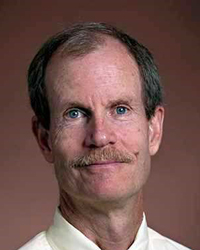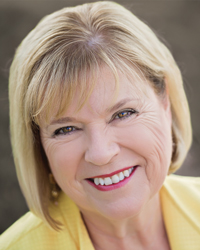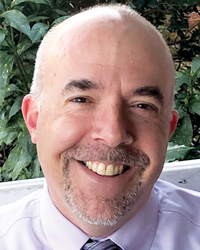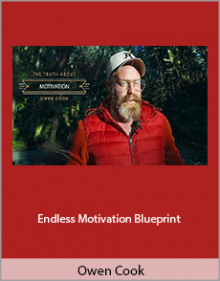James Phelps and Paul Brasler – Advanced Treatment of Depression and Mood Disorders A Certification Training Course
Original price was: $1,039.00.$559.00Current price is: $559.00.
Between pure depression and Bipolar I lies a complex landscape of “mid-spectrum diagnoses,” including Bipolar II. The DSM has yet to fully recognize this spectrum of mood disorders. It still classifies depression and bipolar disorders as separate illnesses…
- Description
- Reviews (0)
- More Products
Description
James Phelps and Paul Brasler – Advanced Treatment of Depression and Mood Disorders A Certification Training Course
Sale Page: https://catalog.pesi.com/sales/bh_c_001354evg_depression_and_mood_disorders_organic-108665
self-harm & help your clients live more joyfully
If you want to use leading-edge research to master successful clinical diagnoses so your clients get the treatment they need to thrive… then this is going to be the most important message you read all day. Here’s why…
Between pure depression and Bipolar I lies a complex landscape of “mid-spectrum diagnoses,” including Bipolar II. The DSM has yet to fully recognize this spectrum of mood disorders. It still classifies depression and bipolar disorders as separate illnesses…
…Which contributes to the misdiagnosis of as many as 69% of bipolar disorder cases. More than one-third of these people remain misdiagnosed for 10 years or more. Mood disorder misinformation can have serious consequences for clients, including increased risk of suicide and self-harm.
According to the Archives of General Psychiatry, “Inappropriate treatment of bipolar disorder [BPD] is a serious problem in the U.S. population. Sub-threshold BPD is commonly occurring, clinically significant, and under-detected in treatment settings.”
To help you clear these hurdles to accurate diagnosis, we’ve created this exclusive, depression and mood disorder online training course. It will help you treat these conditions properly, and reduce the risk of client suicide.
This certification training has been created for helping professionals, including:
- Nurses
- Teachers
- Therapists
- Counselors
- Psychologists
- Social Workers
- Case Managers
- Psychotherapists
- Addiction Counselors
- School Administrators
- Marriage & Family Therapists
- Other Mental Health Professionals
What You’ll Discover In This Certification Training
PART ONE: Bipolar Disorders: Essentials for Clinical Practice with James Phelps, M.D.
- Mnemonic devices to help remember the clusters of symptoms that make up a bipolar diagnosis
- Hypomania and how it differs from mania
- Using the MoodCheck tool, Bipolarity Index and non-manic bipolar markers such as family history and response to medication to recognize bipolarity
- An overview of the effectiveness—and limitations—of brain imaging tools in diagnosing bipolar disorder
- Exploring genetics, gut inflammation, circadian stress, hormones and trauma
- Determining what is bipolar disorder vs. depression, addictions or ADHD
- Bipolar-specific psychotherapy: recommended modalities and tools
- Using sleep rhythm, social rhythm and light and darkness as therapeutic tools
- Medications that can—and cannot—treat bipolar disorders: Risk factors, benefits and how to effectively add useful meds to a treatment plan
- How to use the “consultation to the client” model to help your clients taper off antidepressant medication
- An overview of a treatment plan that can help you implement this therapy in your practice
PART TWO: The 10 Best-Ever Depression Management Techniques: Managing Depression across the Lifespan, Raising Energy and Improving Cognition with Margaret Wehrenberg, Psy.D.
- Core symptoms of depression you’ll likely encounter with clients
- Multiple causes of depression
- Bipolar disorder spectrum and depression
- The importance of self-care in managing depression—and great ways to practice it
- The role of medications
- Identifying depression triggers and ways to counteract them
- How to engage the client in their sessions and habit building
- How to help your clients replace negative thinking and habits with positive ones
- Helping clients to mobilize their energy to overcome lethargy
- Helping your clients to move out of isolation and engage in REAL social situations and friendships, not only social media
- What your clients can do to start feeling more positive and balanced in their lives
- Helping your clients overcome perfectionism and increase self-compassion
- Tools and processes for stopping destructive behavior
- Developing interventions for bad moods
- How to reframe negative experiences to manage disappointment and reduce catastrophizing
- How to help your clients develop a tolerance for hope
- Cultivating a gratitude practice as part of helping your clients savor life
PART THREE: Suicide Assessment and Intervention: Today’s Top Challenges for Mental Health Professionals with Paul Brasler, MA, LCSW
- Why people choose suicide
- Identifying risk factors
- How to identify protective factors for suicide
- Types of suicidal ideation and intent
- Two important things you must do before working with clients
- How to identify implicit suicidal intent
- Open-ended questions to ask to build the client-clinician relationship
- The importance of documentation: protect your clients (and your license)
- Assessing a client’s suicide disposition
- Knowing when to hospitalize—and how to ensure their safety once there
- Why “contracting for safety” is an outdated and potentially dangerous, clinical tool (and what to do instead)
- Effective medications and treatments in reducing the risk of suicide
- Tools, processes and modalities you can use to improve outcomes with clients after the initial crisis has passed
- How to assess and treat non-suicidal self-injury (such as cutting) and other self-injurious behaviors
- Depressive, bipolar and psychotic disorders
- Personality disorders
- Substance use disorders
- Suicide clusters and pacts
- Homicide-suicide
- Assessing threats of future violence or homicide
- The importance of self-care
- Self-care activities that can help reduce the risk of compassion fatigue or burnout
- Recognizing what you can control—and what’s out of your control
- The value of debriefing and peer supervision\
Meet Your Course Experts:

James Phelps, M.D., specializes in complex mood and anxiety problems. He has focused on teaching about non-manic versions of bipolar disorder for over 10 years. His website, PsychEducation.org, receives 20,000 visitors a month. Dr. Phelps is the author of Why Am I Still Depressed?: Recognizing and Managing the Ups and Downs of Bipolar II and Soft Bipolar Disorders (McGraw-Hill, 2006).
He authored revisions of the diagnostic criteria for bipolar spectrum disorders for the International Society for Bipolar Disorders. He has published multiple articles and reviews for peer-reviewed journals, including the Journal of Affective Disorders and Chronobiology International. He was recently named Bipolar Disorders section editor for Psychiatric Times.
He has received numerous awards for his teaching, including Teacher of the Year awards from both the Psychiatry and Family Medicine departments at the University of New Mexico, and from his current hospital’s residency program. Dr. Phelps received his M.D. from Case Western Reserve University. He completed his residency in psychiatry and a fellowship in medical education at the University of New Mexico. He holds an undergraduate degree in Human Biology from Stanford.

Margaret Wehrenberg, Psy.D., a licensed clinical psychologist, is the author of 6 books on the treatment of anxiety and depression, including her most recent book for the general public The 10 Best Anxiety Busters. An expert on the treatment of anxiety and depression, she has extensive training and expertise in the neurobiology of psychological disorders. She earned her M.A. specializing in psychodrama and play therapy with children.
Dr. Wehrenberg has years of experience as a drug and alcoholism counselor, working with the U.S. Army in Germany and Lutheran Social Services in Illinois. She also has training in trauma treatment, EMDR, and Thought Field Therapy. She has a private psychotherapy practice in Naperville, IL, specializing in treating anxiety.
In addition to clinical work, she coaches business professionals on managing anxiety, she frequently contributes articles for Psychotherapy Networker magazine, and she has produced Relaxation for Tension and Worry, a CD for breathing, muscle relaxation and imagery to use with anxious clients. Her book, The 10 Best-Ever Anxiety Management Techniques, published by W.W. Norton, is a consistent top seller for anxiety management. You can find her on the web at www.margaretwehrenberg.com.

Paul Brasler, MA, LCSW, has worked in the social work field for the past 22 years. His work experience includes adolescent residential treatment, inpatient and outpatient substance abuse treatment, experiential group process, being a mental health provider on a hostage negotiation team, drug court senior clinician, private practice with individuals and families, and crisis interventions.
For the past seven years, Paul has worked in five emergency departments in the greater Richmond, Virginia area conducting psychiatric assessments of patients in crisis. Paul helps the most vulnerable population in his community, and he enjoys the intersection of mental health, substance abuse and medicine. A graduate of Virginia Commonwealth University’s Graduate School of Social Work, Paul returned to his alma mater to teach in 2012.
While he readily acknowledges the need for coherent and means-tested theories to support practice, he ultimately values the live experience of putting strategies into practical use. Seminar attendees consistently note that they like how he uses “real life” examples in his presentation.
Be the first to review “James Phelps and Paul Brasler – Advanced Treatment of Depression and Mood Disorders A Certification Training Course”
You must be logged in to post a review.
-
Abraham Hicks – San Diego, CA – Aug 31
Original price was: $225.00.$42.00Current price is: $42.00. Buy now -
Dean Vaughn – The Vaughn Cube For Music Theory
Original price was: $49.95.$17.00Current price is: $17.00. Buy now -
Shontavia Johnson – Arlan’s Academy – Business Foundations Mini Course
Original price was: $100.00.$40.00Current price is: $40.00. Buy now -
Tim Desmond – The Self-Compassion Skills Workbook
Original price was: $23.62.$12.00Current price is: $12.00. Buy now -
Owen Cook – Endless Motivation Blueprint
Original price was: $97.00.$29.00Current price is: $29.00. Buy now





















Reviews
There are no reviews yet.